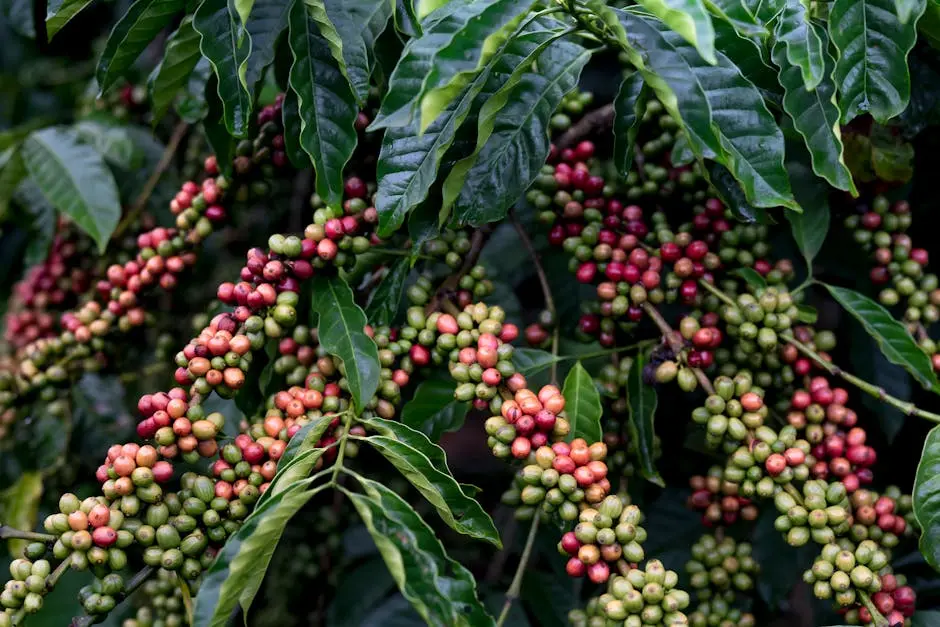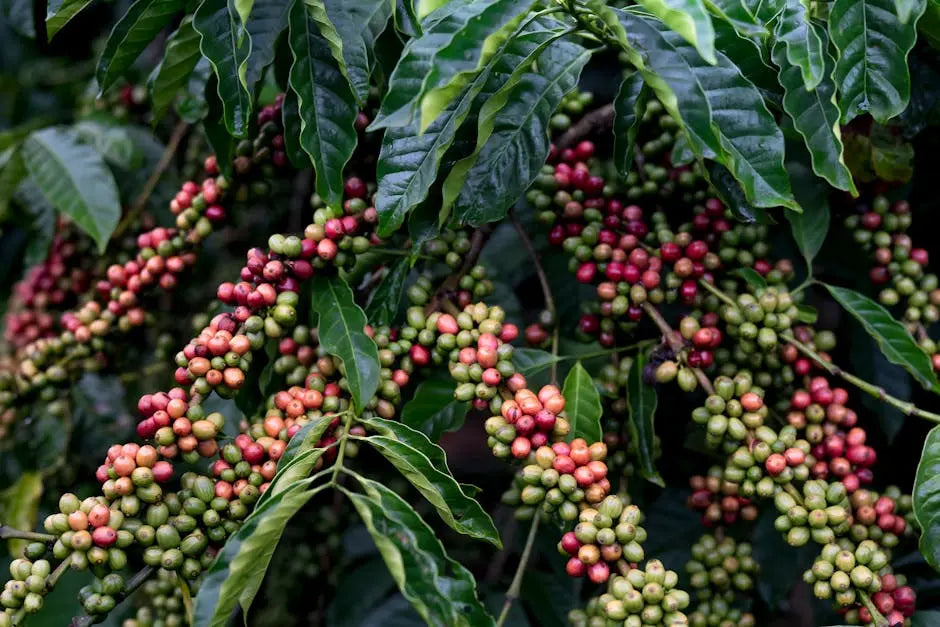African coffee is not just a beverage; it’s a rich cultural experience that can energize your mornings. With its unique flavors and health benefits, incorporating this delightful drink into your daily routine can transform not only your mornings but also your overall well-being. Let’s explore why you should make African coffee a staple in your morning ritual.

The Rich Heritage of African Coffee
African coffee has a legacy that stretches back centuries, deeply rooted in the cultures and traditions of its producing countries. The coffee plant is believed to have originated in Ethiopia, where it was discovered by goat herders who noticed their goats became energetic after consuming coffee berries. This serendipitous discovery laid the groundwork for a beverage that would eventually captivate the world, connecting people through shared rituals and experiences.
Each country in Africa contributes its unique story to the rich tapestry of coffee heritage. From Ethiopia to Kenya and Uganda, the variations in cultivation, processing, and brewing techniques create a diverse array of flavors. These differences reflect not only geography but also the cultural narratives that accompany each brew. Drinking coffee from these regions is like taking a sip of history, connecting us to the land and its people.
Moreover, celebrating African coffee pushes us to appreciate the hard work and dedication of local farmers. Many of these individuals have been cultivating coffee for generations, using traditional methods that honor their ancestors. As we indulge in these flavors, we should also recognize the vibrant communities and histories behind each cup.
Unique Flavor Profiles: What Makes African Coffee Stand Out?
The allure of African coffee lies not just in its rich history but also in its remarkable flavor profiles, each distinct to its region of origin. For instance, Ethiopian coffee often features floral notes and bright acidity, reminiscent of jasmine and citrus fruits. This freshness makes it an ideal choice for those who enjoy a lively cup to kickstart their day.
In contrast, Kenyan coffee is celebrated for its bold, full-bodied taste with a delightful tanginess. It often exhibits berry and tomato flavors, making it truly unique. This complexity provides coffee enthusiasts with an exciting experience, as each sip reveals layers of flavor that dance on the palate.
Interestingly, the processing methods widely used in Africa—such as natural and washed processes—further enhance these flavors. The natural process, which allows the coffee cherry to ferment before being dried, can impart fruity and sweet notes that are distinctively bold. On the other hand, the washed process tends to create a cleaner and brighter cup with crisp acidity. Experience each of these profiles, and you might discover a favorite that encapsulates your morning preference.
Health Benefits of Drinking African Coffee
Beyond the pleasure of flavor, African coffee also boasts several impressive health benefits that can positively impact your mornings. Rich in antioxidants, it can help protect your cells against damage from free radicals, supporting overall health. These beneficial compounds, found abundantly in unprocessed coffee beans, provide a refreshing boost that makes your morning routine even more rewarding.
Additionally, coffee has been shown to enhance cognitive function, particularly in the areas of alertness and concentration. With its caffeine content, it serves as an effective stimulant that can heighten your mental performance when you need it most—be it during busy mornings or demanding work hours. Studies suggest that moderate consumption may even lower the risk of certain diseases, such as Parkinson’s and Alzheimer’s, making it a smart addition to your diet.
Moreover, African coffee’s potential role in metabolism cannot be overlooked. Some studies indicate that coffee can help improve metabolic rates, aiding in weight management for those who lead active lifestyles. This multifaceted beverage not only ignites your day but also nurtures your well-being, making it an essential part of a healthy morning routine.
How to Brew the Perfect Cup of African Coffee
Brewing the perfect cup of African coffee is an art that combines technique and passion. Firstly, selecting high-quality beans is essential. Look for single-origin African coffees that highlight the unique flavor profiles of their regions. Once you have your beans, consider the grind size; a medium grind works well for brewed coffee methods, while a coarser grind suits French press brewing.
Next, pay attention to water temperature—ideally between 195°F and 205°F (90°C to 96°C)—which ensures optimal extraction of flavors without bitter elements. For a drip coffee maker, use two tablespoons of coffee for every six ounces of water as a general guideline, adjusting according to your taste preferences. As you brew, take a moment to enjoy the aromas that fill your kitchen, setting the tone for a delightful experience.
Finally, don’t forget the importance of serving! Try pairing your freshly brewed African coffee with a light breakfast or snack that complements its flavor, enhancing your overall enjoyment. With practice, you’ll develop your personal brewing ritual, making each cup a celebration of taste and culture.
Sustainable Practices in African Coffee Farming
As you fall in love with African coffee, it’s crucial to understand the impact of sustainable practices in coffee farming. Many farmers across the continent are embracing organic and sustainable cultivation methods. These practices not only protect local ecosystems but also nurture the soil, which is essential for producing high-quality beans.
These sustainable approaches often involve intercropping, where coffee plants thrive alongside other crops, promoting biodiversity. Additionally, using compost and natural fertilizers reduces reliance on synthetic chemicals, which can harm both the environment and the health of the farmers. This holistic approach to farming ensures that the communities remain intact, allowing future generations to reap the benefits of their ancestors’ work.
Moreover, by choosing African coffee from sustainably sourced brands, you contribute to fair trade practices that empower farmers economically. Fair trade certification helps ensure that farmers receive fair wages, leading to improved quality of life and community development. Your cup of coffee can be a force for positive change, supporting the necessary efforts for sustainable farming practices in Africa.
Make African Coffee Your Morning Ritual
Embracing African coffee in your morning routine is about more than just the caffeine boost; it’s a celebration of flavor, culture, and health. By choosing African coffee, you are not only enjoying a unique brew but also supporting sustainable farming practices. So why not pour yourself a cup of this exceptional coffee tomorrow morning and experience the difference?







